Not only does wearing a Guy Fawkes mask at demonstrations give protesters anonymity, it's an instant symbol of rebellion
The now emblematic Guy Fawkes mask, made famous by the film V For Vendetta (somewhat based on the graphic novel of the same name by Alan Moore) has surprisingly become a worldwide bestseller. More than 100,000 masks a year are now being sold. This number seems destined to keep rising, since the accessory has become the en-vogue revolutionary symbol for the younger generation, perhaps even challenging the previous revolutionary iconography of the famous photograph of Che Guevara by Alberto Korda.
The New York Times has already noted the irony: a symbol embraced by anti-establishment activists is, thanks to its popularity, helping to fill the coffers of a large Hollywood corporation. But it is worth noting that the adoption of the mask as a political symbol hints at a more significant change in the way the younger generations view protesting and political dissent.
Rightly or wrongly, certain symbols come to represent political sentiments among generations: the Guerrillero Heroico, with Ernesto "Che" Guevara's mix of anger and determination, came to represent the willingness to face political and social battles head on throughout the late 60s and 70s. Similarly, the immediately recognisable peace sign, which was first used simply as a symbol of the British anti-nuclear movement, was quickly adopted by the pacifist movement, reaching the pinnacle of its fame during the Vietnam war.
Rightly or wrongly, certain symbols come to represent political sentiments among generations: the Guerrillero Heroico, with Ernesto "Che" Guevara's mix of anger and determination, came to represent the willingness to face political and social battles head on throughout the late 60s and 70s. Similarly, the immediately recognisable peace sign, which was first used simply as a symbol of the British anti-nuclear movement, was quickly adopted by the pacifist movement, reaching the pinnacle of its fame during the Vietnam war.
However, with the recent rise of harsher and more intrusive social media laws, where to be recognised by the authorities can lead to a prison sentence, it is telling that dissenting voices are turning to a symbol of anonymity as their symbol of protest.
The late French philosopher Jean Baudrillard argued that objects had both a use value and a sign value, a helpful dichotomy to understand this phenomenon. The mask, with its contorted grimace and caricaturised features, offer protesters a sign behind which their identity and intentions can be hidden. Akin to a balaclava during a riot, it offers an opportunity at participation and secrecy – but unlike a balaclava, the mask also carries in itself a political dimension. The increasing number of sales of the mask tells the story of a generation disenfranchised from the political process, but one which remains wholly political. It is in this kind of situation that power symbols become important.
It would be naive to assume that every mask that has been sold is a political statement, just as it would be clearly wrong to assume that every "Che" branded product represents an adherence to the Argentine revolutionary's communist values. But if we understand this phenomenon as the commercial consumption of an idea, political dissent and anonymity are then slowly becoming mutually dependent, if not synonymous.
The late French philosopher Jean Baudrillard argued that objects had both a use value and a sign value, a helpful dichotomy to understand this phenomenon. The mask, with its contorted grimace and caricaturised features, offer protesters a sign behind which their identity and intentions can be hidden. Akin to a balaclava during a riot, it offers an opportunity at participation and secrecy – but unlike a balaclava, the mask also carries in itself a political dimension. The increasing number of sales of the mask tells the story of a generation disenfranchised from the political process, but one which remains wholly political. It is in this kind of situation that power symbols become important.
It would be naive to assume that every mask that has been sold is a political statement, just as it would be clearly wrong to assume that every "Che" branded product represents an adherence to the Argentine revolutionary's communist values. But if we understand this phenomenon as the commercial consumption of an idea, political dissent and anonymity are then slowly becoming mutually dependent, if not synonymous.
Anonymous, the hacking collective, is perhaps our best example. While the organisation supports anti-establishment and civil disobedience as its set of principles, it also welcomes a large number of people for whom such goals are perhaps not as important as Anonymous would like us to believe. However, the mask offers it at once a political symbol that provides anonymity. And therein lies the symbol's increasing popularity, imbued with a political aura while simultaneously offering the comfort (and depending on your activities, the safety) of secrecy.
Or perhaps I'm just barking up the wrong tree; the Guy Fawkes mask phenomenon might be nothing more than a fad . But if we have learned anything from the longevity of Korda's Che image, it is that when a symbol takes hold of our imagination, it is worth considering its relevance.
Or perhaps I'm just barking up the wrong tree; the Guy Fawkes mask phenomenon might be nothing more than a fad . But if we have learned anything from the longevity of Korda's Che image, it is that when a symbol takes hold of our imagination, it is worth considering its relevance.



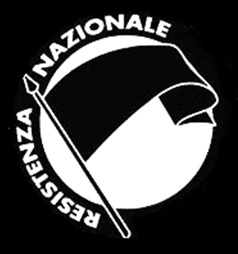


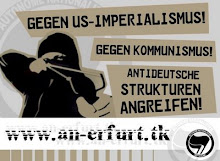
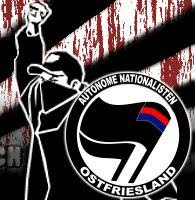
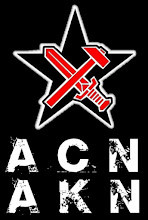
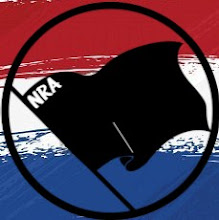


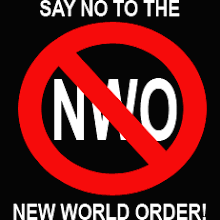
Nessun commento:
Posta un commento